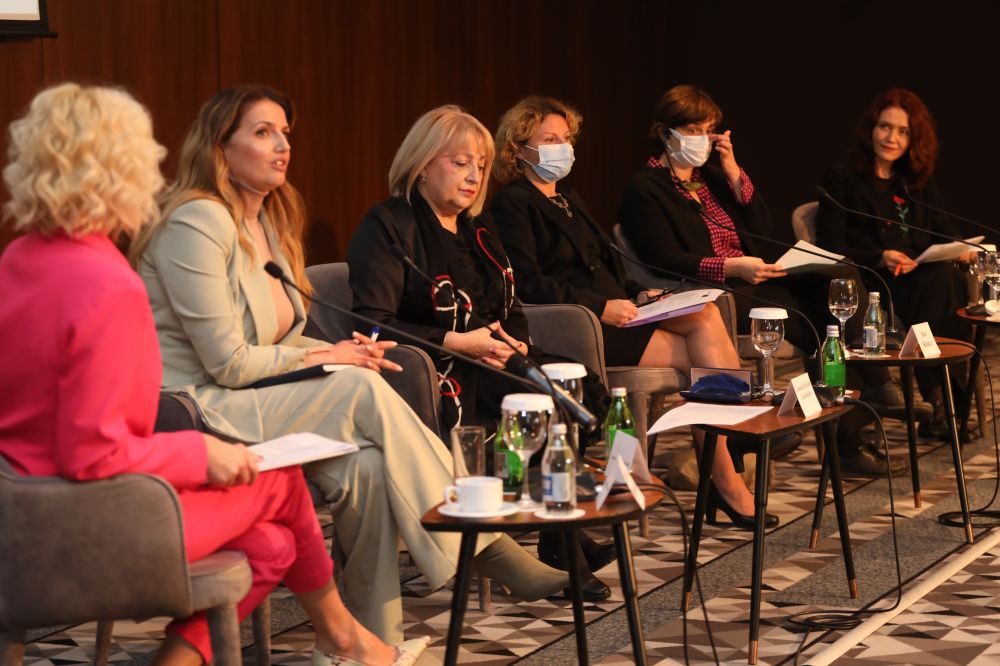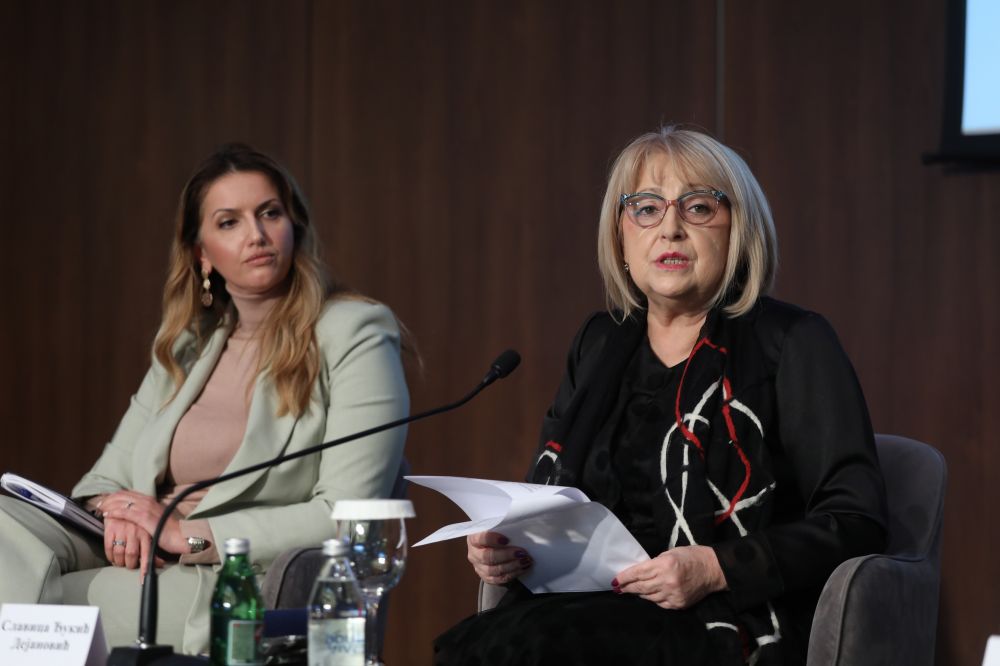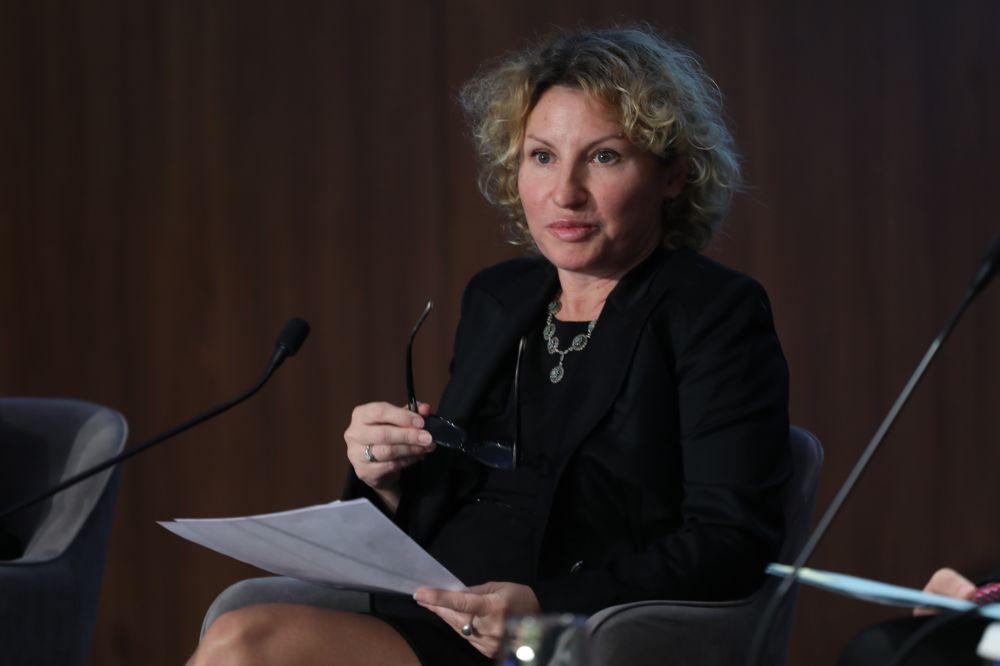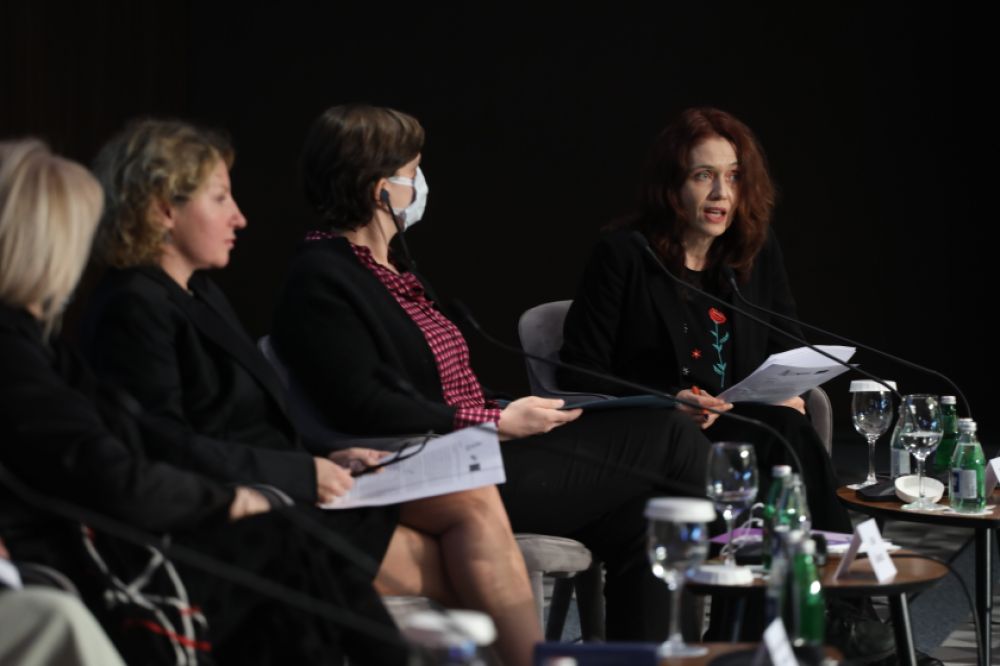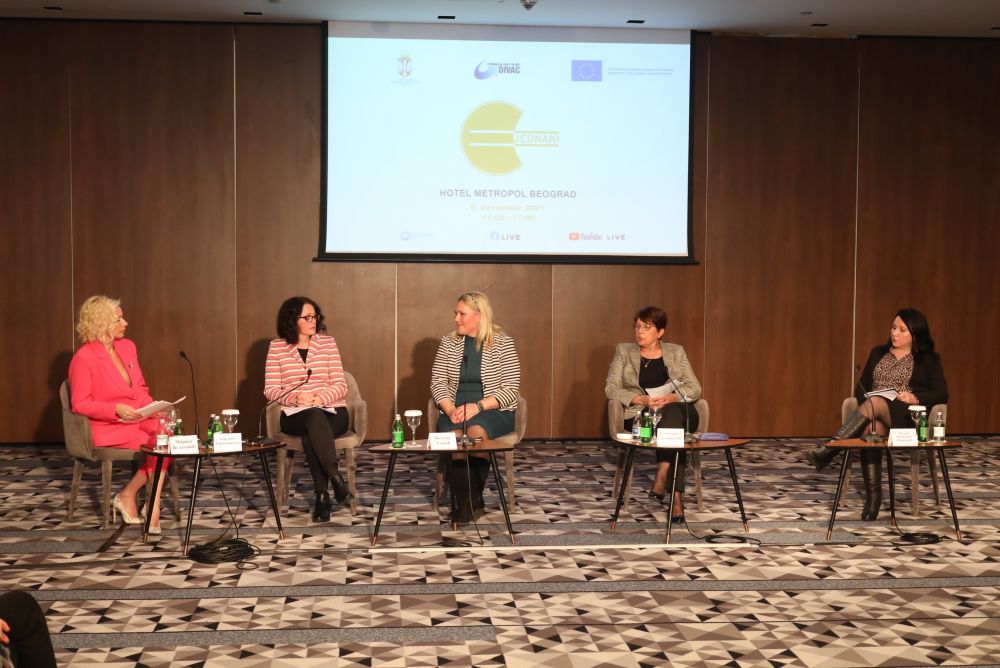Gender inequality, as well as stereotypes related to the women's role within a family, exists due to a lack of information concerning labour and employment rights, as well as long-term societal discrimination against women. The Ana and Vlade Divac Foundation and the Ministry of Family Welfare held a conference "How to reach balance between work and family life - the future of work", whose main goal was to strengthen the partnership between employees and employers, as well as inform about the rights in the field of labour and employment, with special emphasis on women.
Bearing in mind that gender inequality still exist in Serbia, as do the stereotypes related to women's role within a family, Aleksandra Camagic, Assistant Minister of the Ministry of Family Welfare and Demography pointed out that "we as the Ministry have the opportunity to bring about additional strengthening of a favourable climate for work and parenthood and encourage decision makers, especially those at a local level to harmonize segments of professional and private life".
Slavica Djukic Dejanovic, Special Advisor to the Prime Minister in the Government of Serbia, stated that “the existing Labour Law creates the possibility for employees to, in agreement with the employer, use various forms of flexible working hours, the possibility of working from home and choosing shifts. It is important to emphasize the importance of the results of the Equal project, which aims to create a healthy working atmosphere, a more successful, and competitive economy, but above all to increase the number of satisfied employees. This project supports women as individuals, their authenticity and their needs.”
Reconciling work and parenthood is a daily challenge for women and men across Europe. The new EU directive, among other things, aims to make working hours more flexible and influence a higher number of men to take parental leave after the birth of a child as a support to working parents.
“Balancing work and family life is a daily challenge for men and women around the world, and the European Union's work-life balance directive seeks to strengthen employees' rights and improve working conditions for working parents, while at the same time aims to provide more flexibility for employed mothers and fathers,” Leonetta Pajer, Head of the Operations of the EU Delegation to Serbia, said.
“When presenting this project's report, we learned of the fact that 70% of fathers with children managed to advance their careers, while only 30% of women in same situation were able to improve professionally. This situation is influenced by numerous factors, both the conditions set by the employer and the conditions in the wider community, therefore a series of measures is necessary to improve the existing situation,” Nevena Sovic, UNFPA Reproductive Health and Youth Adviser for Serbia, said.
According to the National Strategy for Gender Equality of the Republic of Serbia (2016-2020), 95% of all women in Serbia spend five hours a day on household chores, while men spend almost 40% less - three hours, and have one hour of free time more than women. One of the goals of the project Equal - Towards Gender Equality by Reconciling Employees' Work and Family Life, implemented by the Ana and Vlade Divac Foundation together with the Ministry of Family Welfare is to increase the level of health literacy among employees and employers.
Ana Kosel, Director of the Ana and Vlade Divac Foundation believes that “none of us should be afraid of the way in which we will be treated at work, nor should the treatment depend on the employee's gender, whether he or she works from home or not, whether a woman has decided to assume the role of a mother, or not. Labour rights are our fundamental rights, and insisting on respecting those rights must become everyone's task.”
Gordana Bjelobrk, the co-author of the research Reconciliation of work and parenthood - employers and employees points out that most social policy measures within the existing legislation are aimed primarily at childbearing, but do not provide sufficient support to families during the longer period of childrearing. Flexible working hours are becoming increasingly popular in modern business conditions, which has been confirmed during the extraordinary working circumstances caused by the pandemic.
“The Manual aims to acquaint us with the basic principles of labour law because many people are not familiar with the institution of harmonization of family and work obligations, but also with the rights related to paid leave, legal leave and labour rights. Reconciliation of family and work obligations is not exclusively a legal category, but the responsibility should be on the local self-government and employers, as employees are an important resource within every company, and the relationship between employers and employees is above all - a relationship of trust,” Bojan Urdarevic, professor of labour law and author of the Manual on labour law for employees and employers, said.
The final conference was realized within the project Equal - Towards gender equality by harmonizing employees' work and family life implemented by the Ministry of Family Welfare and the Ana and Vlade Divac Foundation, with financial support from the European Union, through the program Rights, Equality and Citizenship .
